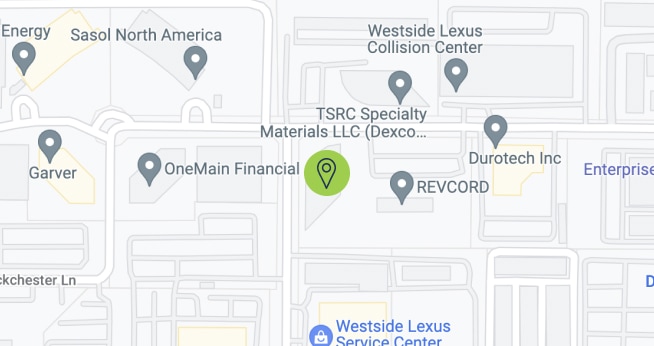Does Texas Have a Good Samaritan Law?

Texas has a Good Samaritan law that encourages people to try to help out if they come upon an emergency situation such as a car crash. The law says that anyone who provides emergency aid in good faith will not be liable for civil damages if their actions make things worse.
Good Samaritan laws exist in Texas, and they allow individuals to provide aid to people injured in a motor vehicle accident without fear of liability in many circumstances. The laws are meant to protect well-meaning bystanders who decide to provide emergency medical assistance. They bar liability for negligence in good-faith efforts to render emergency aid. Thus, people may be more likely to provide aid during an emergency.
Good Samaritan laws do not require you to have a medical license to provide aid. If their actions follow the guidelines of the law, anybody at the scene of the accident may provide aid that is not willfully or wantonly negligent without fearing serious legal consequences.
Given the rise in the number of fatal accidents in the U.S. each year, according to NHTSA, Good Samaritan laws could play a critical role. In fact, these laws may save lives. This article will provide information on Good Samaritan laws generally and in Texas more specifically.
Who Is Protected Under the Good Samaritan Law?
States across the U.S. take varying approaches to Good Samaritan laws. These laws primarily protect people at the scene of an accident who render aid. However, not everyone who provides such aid will receive the protection of a Good Samaritan law. For example, Good Samaritan laws usually do not apply to medical or other emergency response professionals, like police officers or paramedics, who were specifically called to the scene of the accident. This is because a person is not considered a Good Samaritan if they provided emergency services during the course of employment. Texas law does not protect individuals from civil liability if they were otherwise entitled to receive compensation for the emergency care services they provided.
There are additional limitations on the protections provided by Good Samaritan laws in Texas. These laws do not protect individuals who purposely place themselves at the scene of an accident to solicit business or seek compensation for performing emergency services. Thus, Texas Good Samaritan laws draw a clear line between individuals who genuinely want to provide emergency care and individuals who primarily want to make a profit from an accident.
The people who qualify for protection under these laws may provide emergency assistance at the scene of an accident without fear of certain legal penalties. However, people who provide such assistance must do so in good faith.
Providing care in a manner that is willfully or wantonly negligent will prevent any Good Samaritan law protections from applying, and this could lead to substantial liability. Moreover, if a person’s actions were the main ones that caused the emergency, they may not receive protection under Texas Good Samaritan laws.
It is important to speak with an attorney if you suspect that you may have been harmed by someone who provided willfully or wantonly negligent emergency care at the scene of an accident.
What Is the Purpose of a Good Samaritan law?
Good Samaritan laws are meant to encourage – or at least not dissuade – people to provide emergency care at the scene of an accident. In the past, before Good Samaritan laws came into place, individuals could face huge amounts of liability for trying to provide medical aid. States responded in various ways. Some states require an individual to provide assistance if they are at the scene of an emergency. Others simply provide limited protection for individuals who make the voluntary decision to assist at the scene of an accident in a way that is not grossly negligent or reckless.
On the whole, these laws allow bystanders and witnesses to provide aid without fear of massive civil penalties or liability for harm caused by their efforts. Nobody wants to face a lawsuit when they were only trying to help. Good Samaritan laws make it less likely for such a lawsuit to occur, which promotes helpful behavior by volunteers. However, there are cases in which someone could be held liable for harming an accident victim when their efforts were willfully and wantonly negligent.
What Is the Good Samaritan Law for CPR?
Good Samaritans who provide emergency CPR are also protected under existing Good Samaritan laws. However, there should be an apparent need for emergency CPR or assistance. Without good-faith efforts to provide aid in an emergency, a Good Samaritan could still face liability.
What Is the Good Samaritan 911 Law?
Again, the same Good Samaritan laws apply when calling 911. It is important always to remain truthful and honest when talking with 911 personnel. Civil liability for providing emergency care arises when a person does not act in good faith. Thus, a fraudulent or misleading call to 911 could potentially lead to civil liability. Also, it is important to remember that Good Samaritan laws primarily deal with state civil liability. This means that any federal civil liability or criminal law liability, whether state or federal, could still result from a Good Samaritan’s behavior.
Contact Us for Legal Help After an Accident
The Houston car accident legal team at Fleming Law has years of experience representing accident victims. If you believe your injuries may have been made worse by a bystander’s willfully or wantonly negligent efforts to help, you should speak with a member of our team. Mr. Fleming is a board-certified personal injury attorney and has the legal knowledge to help you understand your legal options. Contact us by phone, online, or through our webpage’s live chat option today. We can help you understand your situation in the face of the existing Texas Good Samaritan laws.

Brendan received his JD from South Texas College of Law and his MBA from Baylor University. He then began his legal career as in-house counsel for a publicly-traded company, advising on matters such as mergers and acquisitions, securities, compliance, and general corporate transactions. He then worked at a national law firm in which he represented commercial banks, private equity firms, and business owners in complex transactions before joining Fleming Law, Brendan uses his considerable knowledge of business-related matters by working on cases involving business law, real estate law, and contracts. Connect with me on LinkedIn








